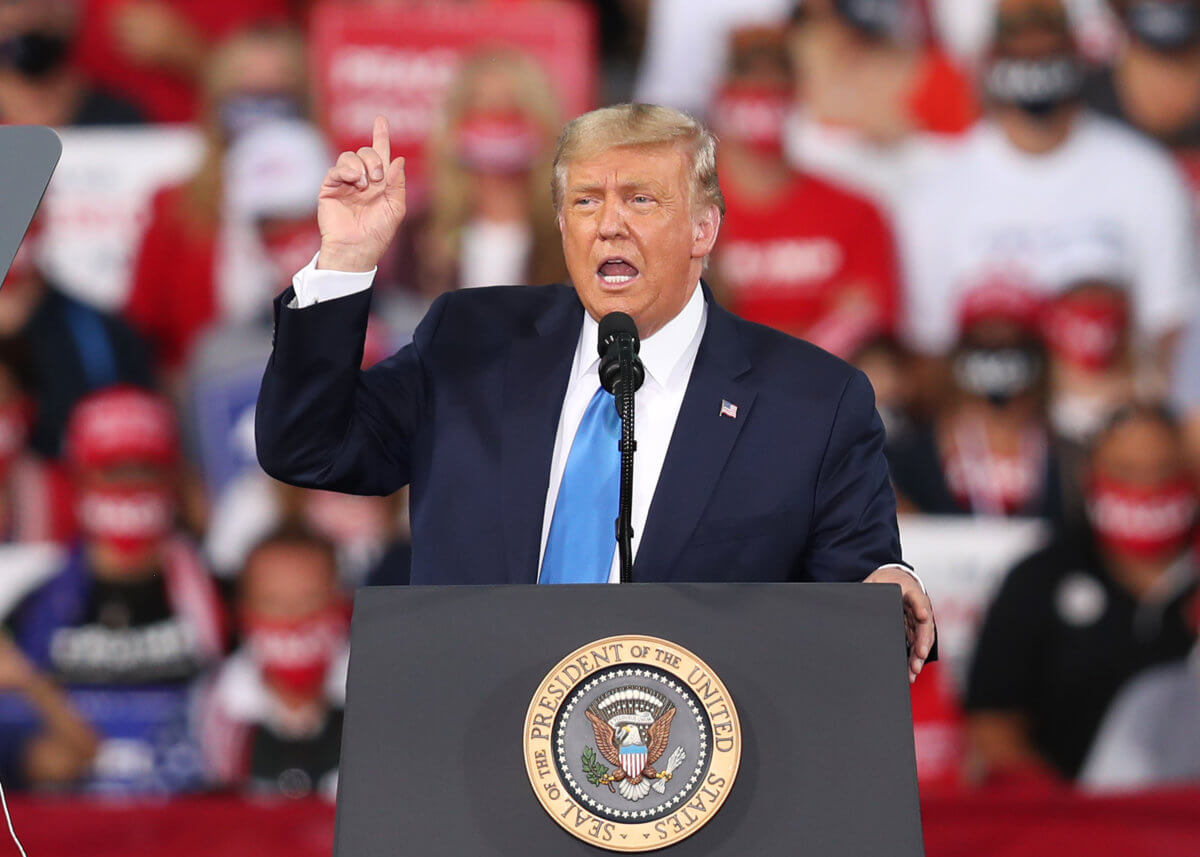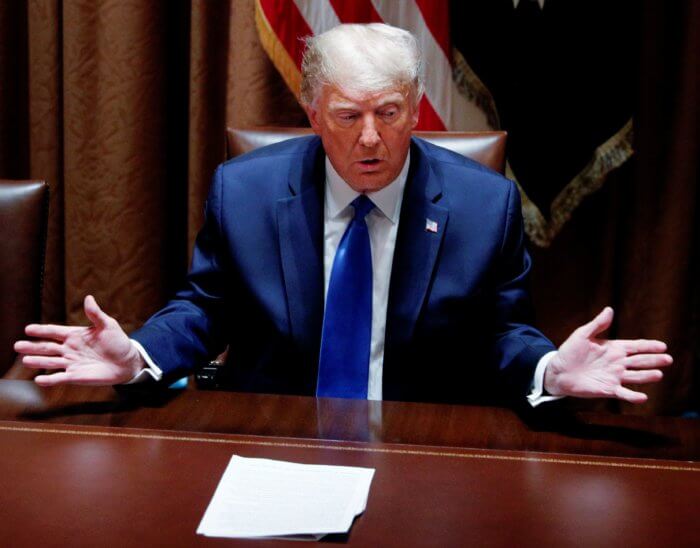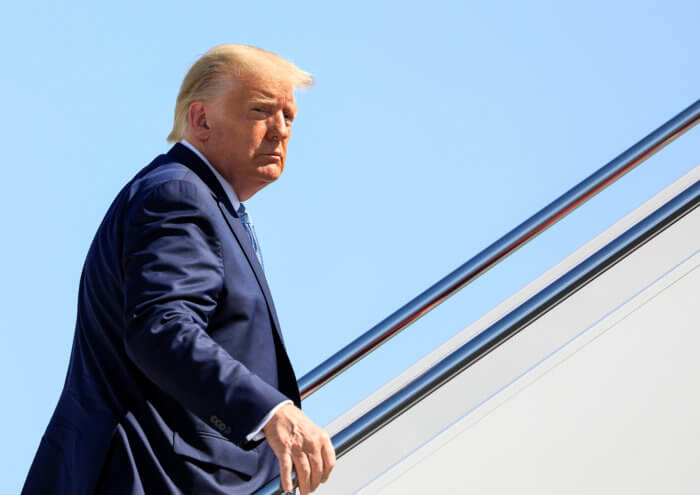By Miguel Velázquez
After an intense electoral campaign, constant accusations and even threats, former Vice President Joe Biden and current President Donald Trump will have the first presidential debate of the 2020 campaign.
Ahead of the election on November 3, the two opponents will have four face-to-face encounters: three presidential and one between running mates. Each one will last 90 minutes, during which candidates will discuss relevant topics, ranging from the management of the economy to the COVID-19 pandemic, and the controversy surrounding Trump’s Supreme Court pick, Amy Coney Barrett, a staunch conservative.
“I would expect the first debate to be about the competing records of Joe Biden and Donald Trump. I expect both candidates to emphasize their accomplishments and draw attention to problems with their opponent’s record. Further, I expect that Biden will try to stay on message, paint contrast with Trump, and try to avoid any gaffes that will change the current trajectory of the race,” John P. Koch, senior lecturer and director of debate at Vanderbilt University, the U.S. “Trump, I expect, will try to create memorable moments that will dominate the media coverage of the event. In short, while Biden will likely be looking to avoid big moments, Trump will be looking to create them.”
The September 29 encounter will be held at Case Western Reserve University in Cleveland and moderated by Chris Wallace, host of “Fox News Sunday.” According to the Commission on Presidential Debates, the format of this debate will be “divided into six segments of approximately 15 minutes each.” Six topics, which are subject to last-minute changes, include Trump and Biden records, the Supreme Court relief, the COVID-19 pandemic, the economy, race and violence in the cities and integrity of the election.
Like every four years, experts warn that the presidential debates in the country need to be renewed:
“I am certainly not the first one to make this argument, but presidential debates in their current format function as joint press conferences,” Koch added. “This is to say that the candidates in a debate often give answers that voters could get from any normal media press conference, as there is usually more engagement between the candidates and the moderator than there is between the candidates themselves. One improvement we could make then would be to encourage formats that would allow for more direct questioning and interaction between candidates.”
He concluded: “Another improvement I have advocated for is that instead of debates being about answering policy questions, they should focus on the job aspects of a president. One way to do this would be for a debate to start with a hypothetical crisis situation. After which, each candidate could meet with their advisors, formulate how they would respond to it, present and answer questions about how they would respond, and then debate other candidates about who has the best approach to the hypothetical situation. This would allow voters to get an insight into how each candidate would actually perform the job of president, not just what their opinions are on issues.”
To learn more about what to expect, Metro talked with Robert Speel, Associate Professor of Political Science at Penn State Erie.
What can we expect from Donald Trump during the first debate?
At the debates in 2016, President Trump was very aggressive when challenging Hillary Clinton. It did not seem to be a popular tactic with debate viewers, but he won the election anyhow. At this debate, he is going to be forced to explain his response to the COVID-19 pandemic, to answer if he is going to respect the outcome of the election if he loses, and to discuss whether his comments in speeches, campaign rallies, and on Twitter provoke racial conflict and violence in the U.S. rather than stop it. Trump will likely try to focus on how well the American economy was doing before the pandemic and to claim that the economy will soon be doing even better than that again. His biggest challenge will likely be to remain calm if Joe Biden or the moderator challenge any lies expressed by Trump or blame him for the high number of coronavirus deaths in the United States.
What about Joe Biden?
President Trump and his campaign have tried to portray Joe Biden as too old and confused to be president. While Biden did sometimes seem to show signs of aging during the presidential primary campaign, he has mostly avoided making large numbers of gaffes in recent public appearances, something which has gotten him in trouble in the past. Trump has also frequently nicknamed Biden as “Sleepy Joe,” though Biden has never had a habit of falling asleep in public. So Biden’s job at this debate is to be ready to criticize strongly Trump’s record as president, to be prepared for clever comebacks when Trump says something that makes no sense, and to seem alert and assertive. If Biden does all that, Trump’s attempts to portray Biden as someone unqualified to be president will fail.
How important are presidential debates?
In the past 25 years, presidential debates have sometimes caused temporary changes in poll results, but have not had any significant impact on the final outcome of an American election. At this point, the debates are just something that presidential candidates are expected to do, and they do provide a very popular form of political entertainment for television networks and for voters. Certain moments in debates become well-known in American culture and history, such as in 2016, when Hillary Clinton accused Donald Trump of being Vladimir Putin’s puppet, and Trump responded, “No puppet, no puppet, you’re the puppet, no, you’re the puppet!” I teach about elections to students, and they love to discuss funny and strange moments in debates like those.
Explainer
We asked a panel of international experts how to define a “win” in a presidential debate?
#1
“Trump and his supporters will say he won no matter what happens, as will Biden and his supporters. Truth and civility have all but vanished in US presidential politics. The debate will not be about facts or truth, it will be a presentation of rhetoric, falsehoods, and what-about-isms.”
Bryan Cranston, PhD Candidate in Politics and History at Queensland, Australia-based Swinburne University of Technology.
#2
“The idea of “winning” a presidential debate is tough – most observers will not change their support from one candidate to the other. There are therefore two main things needed to “win.” First, the “winner” needs to pick up as many undecided voters as possible, and more than the “loser.” Look for the winner to be the candidate who best exhibits decisiveness, pleasantness, and the ability to think on his feet. Second, the winner needs to energize and motivate more of their decided voters than the loser. In this case, look for the winner to handle himself well given what his opponent says and does.”
Gina Yannitell Reinhardt, Senior Lecturer at the Department of Government at the University of Essex, UK
#3
“Each candidate’s supporters are likely to say his candidate won. But legitimate and neutral pollsters will conduct their own post-debate surveys, which will give us a pretty idea of how voters reacted,”
Alan Schroeder, Professor Emeritus at the School of Journalism, Northeastern University, US.































